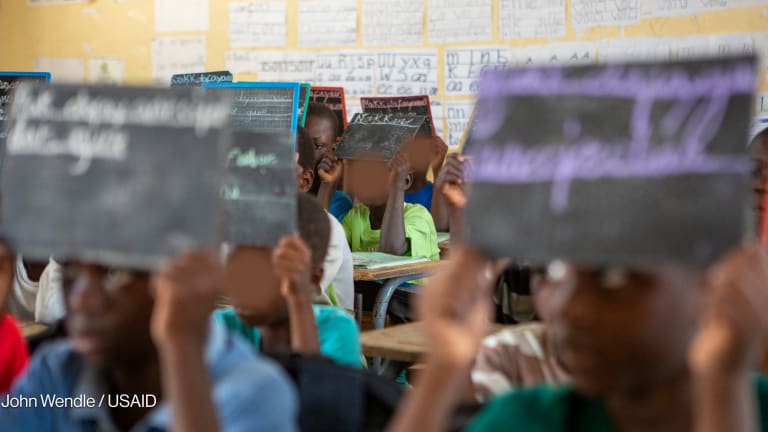War Child Alliance, an international aid agency focused on children in conflict, has received one of two Yidan Prizes — a $3.8 million annual award that recognizes educational research and development.
The $3.8 million development prize was awarded to War Child because of its Can’t Wait to Learn project, an initiative currently active in eight conflict-affected countries. Through solar-powered tablets, the initiative brings self-paced literacy and numeracy skills to children who are blocked from school due to conflict, and with the Yidan Prize, the team intends to grow the program, optimize its implementation, and test its effectiveness.
Those being recognized for War Child’s prize include Mark Jordans, War Child Alliance’s director for research and development; Marwa Zahr, the implementation and practitioner lead of the Can’t Wait to Learn project; and Luke Stannard, the program director of the Can’t Wait to Learn project.
This story is forDevex Promembers
Unlock this story now with a 15-day free trial of Devex Pro.
With a Devex Pro subscription you'll get access to deeper analysis and exclusive insights from our reporters and analysts.
Start my free trialRequest a group subscription







